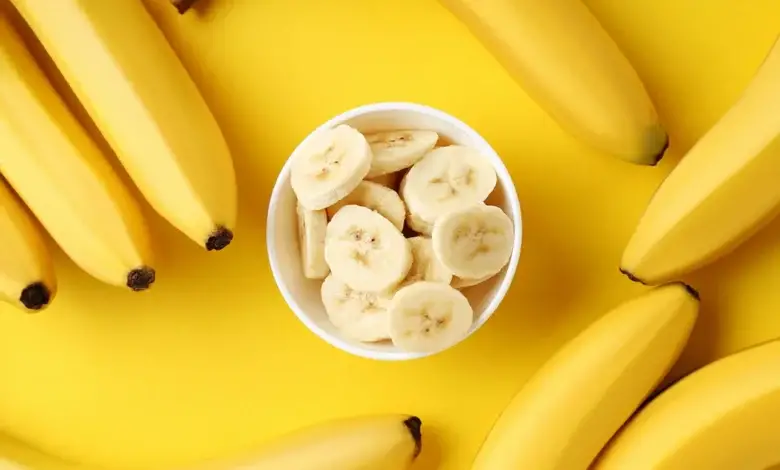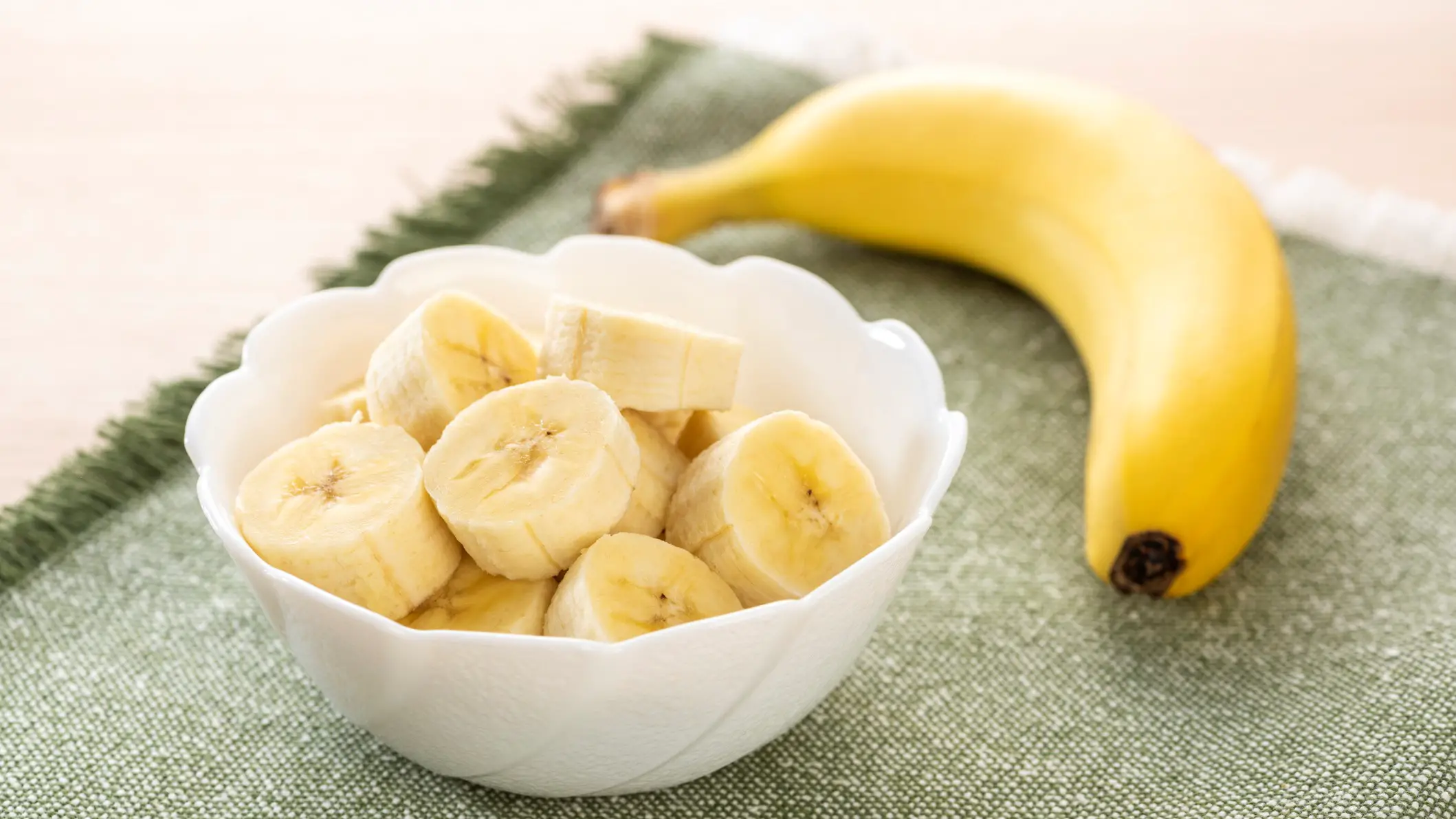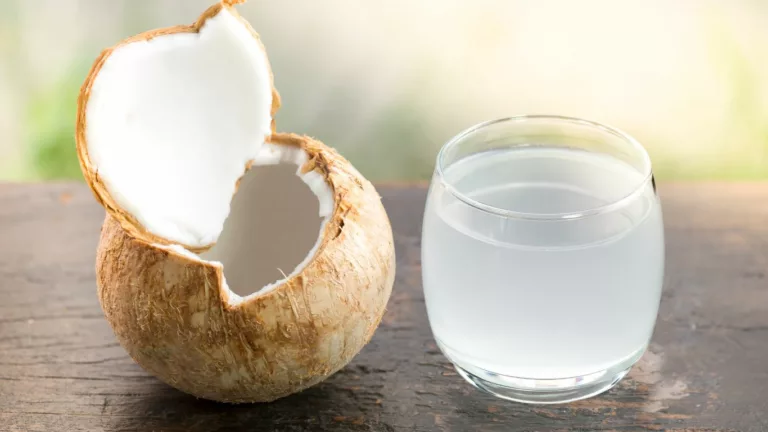Are Bananas Good for Acid Reflux? A Comprehensive Guide
Discover the potential benefits of bananas for acid reflux relief in this comprehensive guide. Learn how their alkaline nature and ability to stimulate mucus production may help neutralize stomach acid and reduce irritation.
Introduction
Acid reflux is a common gastrointestinal disorder that affects millions of people worldwide. It occurs when the lower esophageal sphincter (LES) weakens or relaxes inappropriately, allowing stomach acid to flow back into the esophagus. This backflow of acid can lead to irritation and inflammation, causing uncomfortable symptoms such as heartburn, regurgitation, chest pain, and difficulty swallowing. While medication and lifestyle changes are often recommended for managing acid reflux, dietary modifications can also play a significant role in its management. In recent years, bananas have gained attention for their potential benefits in reducing acid reflux symptoms. In this comprehensive guide, we will explore the scientific evidence behind the use of bananas for acid reflux relief and provide practical tips on how to incorporate them into a reflux-friendly diet.
Overview of Acid Reflux
Acid reflux, also known as gastroesophageal reflux disease (GERD), is a chronic condition that affects the lower esophageal sphincter (LES). The LES is a ring of muscle that acts as a valve between the esophagus and the stomach, preventing the backflow of stomach acid into the esophagus. When the LES weakens or relaxes inappropriately, stomach acid and partially digested food can flow back into the esophagus, causing irritation and inflammation.
The primary symptoms of acid reflux include heartburn, a burning sensation in the chest; regurgitation, the feeling of acid flowing back into the mouth or throat; chest pain, which can mimic the symptoms of a heart attack; and dysphagia, difficulty swallowing. Other symptoms may include chronic cough, hoarseness, and the sensation of a lump in the throat.
Understanding the Impact of Diet on Acid Reflux
Diet plays a crucial role in the management of acid reflux symptoms. Certain foods and beverages can trigger or worsen acid reflux, while others may help alleviate it. Understanding how dietary choices impact acid reflux can empower individuals to make informed decisions about their eating habits and improve symptom management.

Benefits of Bananas for Acid Reflux
Nutritional Profile of Bananas
Bananas are a popular and easily accessible fruit that provides a wealth of essential nutrients. They are an excellent source of potassium, an essential mineral that helps regulate blood pressure and support proper muscle and nerve function. Additionally, bananas contain vitamin C, an antioxidant that boosts the immune system and supports healthy skin, and vitamin B6, which aids in metabolism and brain development. Furthermore, bananas are rich in dietary fiber, which promotes healthy digestion and bowel movements.
Alkaline Nature of Bananas
The pH scale measures the acidity or alkalinity of substances, with values below 7 being acidic and values above 7 being alkaline. Stomach acid typically has a pH level of 1.5 to 3.5, making it highly acidic. When this acidic content flows back into the esophagus, it can cause irritation and discomfort. Bananas, on the other hand, have an alkaline nature, with a pH level ranging from 5 to 6.5. This alkalinity may help neutralize stomach acid to some extent when consumed.
Role of Bananas in Reducing Acid Reflux Symptoms
Bananas have been praised for their potential to alleviate acid reflux symptoms due to several reasons. First, their alkaline nature may help neutralize stomach acid, reducing the overall acidity in the gastrointestinal tract. Second, bananas contain certain compounds that have been found to stimulate the production of mucus in the stomach. This mucus acts as a protective barrier, helping to shield the stomach lining from the corrosive effects of stomach acid. Additionally, the fiber content in bananas aids in healthy digestion and may prevent excessive acid production.

Scientific Evidence Supporting Bananas for Acid Reflux
While anecdotal evidence and personal testimonials often support the use of bananas for acid reflux relief, it is crucial to examine scientific studies to gain a more comprehensive understanding of their efficacy.
Studies and Research on Bananas and Acid Reflux
Several studies have explored the potential benefits of bananas in managing acid reflux symptoms. One study published in the Journal of Nutritional Science and Vitaminology found that banana extract helped protect the stomach lining in rats from aspirin-induced damage, suggesting its potential as a gastroprotective agent. Another study published in the Journal of Pharmacognosy and Phytochemistry reported that the anti-ulcer properties of bananas may be attributed to bioactive compounds like flavonoids and polyphenols. While these studies provide insights into the potential mechanisms of bananas’ effects on acid reflux, more research is needed to confirm these findings in humans.
Mechanisms of Action for Acid Reflux Relief
The mechanisms through which bananas may provide relief from acid reflux are not fully understood, but several theories have been proposed based on existing knowledge of banana composition and its effects on the digestive system. As mentioned earlier, the alkaline nature of bananas may help neutralize stomach acid to some extent when consumed, thus reducing the likelihood of acid reflux episodes. Furthermore, bananas contain protease inhibitors, which are compounds that help prevent the activation of pepsin, an enzyme responsible for breaking down proteins in the stomach. By inhibiting pepsin activity, bananas may reduce the potential for stomach acid to cause damage to the esophagus. Additionally, bananas’ ability to stimulate the production of mucus in the stomach can create a protective layer that prevents direct contact between stomach acid and the stomach lining, potentially reducing irritation and inflammation.

How to Incorporate Bananas into the Diet
To harness the potential benefits of bananas for acid reflux relief, it is essential to incorporate them into a well-balanced, reflux-friendly diet.
Choosing the Right Bananas for Acid Reflux
The ripeness of bananas can influence their impact on acid reflux symptoms. Ripe bananas with brown spots are generally more tolerable for individuals with acid reflux. As bananas ripen, their starch content converts into sugars, making them easier to digest. Ripe bananas also have lower acidity levels, which may reduce the likelihood of triggering heartburn in sensitive individuals.
Banana-Based Recipes for Acid Reflux Management
Incorporating bananas into a variety of delicious and healthy recipes can enhance the overall taste and nutritional value of meals while promoting acid reflux relief. Some popular banana-based recipes suitable for individuals with acid reflux include:
- Banana Smoothie with Almond Milk and Chia Seeds: Blend ripe bananas with unsweetened almond milk, a tablespoon of chia seeds, and a dash of honey for added sweetness. This smoothie is not only soothing for the digestive system but also a great source of nutrients and antioxidants.
- Banana and Oatmeal Breakfast Bowl: Top a bowl of cooked oatmeal with sliced bananas, a drizzle of honey, and a sprinkle of cinnamon. Oatmeal provides a comforting and fibrous base, while bananas add natural sweetness and essential nutrients.
- Banana and Greek Yogurt Parfait: Layer sliced bananas with Greek yogurt and granola for a tasty and gut-friendly parfait. Greek yogurt contains probiotics, which can support a healthy gut and potentially aid in acid reflux management.

Tips for Combining Bananas with Other Foods to Improve Digestion
Pairing bananas with certain foods can further enhance digestion and minimize the risk of acid reflux symptoms.
Bananas and Oatmeal: A Soothing Breakfast Option
Oatmeal is a go-to breakfast choice for many individuals seeking a soothing and gentle start to the day. By adding sliced bananas to oatmeal, you not only increase its nutritional content but also promote better digestion. Oatmeal’s soluble fiber helps absorb excess stomach acid and promotes healthy bowel movements, while bananas provide a creamy and natural sweetness that complements the dish.
Banana and Yogurt: Enhancing Gut Health
Greek yogurt is a probiotic-rich food that supports a healthy gut microbiome. The probiotics in yogurt can help improve digestion and potentially reduce the occurrence of acid reflux symptoms. By adding sliced bananas to yogurt, you introduce additional nutrients and a mild, natural flavor that complements the tanginess of the yogurt.

Precautions and Considerations
While bananas offer potential benefits for many individuals with acid reflux, it is essential to approach their consumption with some precautions and considerations.
Individual Reactions to Bananas
While many people find relief from acid reflux symptoms by including bananas in their diet, individual responses can vary. Some individuals may experience significant relief, while others may notice little to no improvement. As with any dietary change, it is essential to pay attention to your body’s response and adjust your diet accordingly.
Portion Control and Moderation
Although bananas are generally well-tolerated, consuming them in excessive quantities may lead to other digestive issues. As with any food, moderation is key. Aim to include bananas as part of a diverse and balanced diet rather than relying solely on them for acid reflux management.
Consulting a Healthcare Professional
If you experience severe or chronic acid reflux symptoms, it is essential to consult a healthcare professional. A healthcare provider can provide personalized advice and treatment options tailored to your specific needs. They can also help rule out other underlying health conditions that may be contributing to your acid reflux.

Conclusion
Bananas offer a potentially beneficial and natural approach to managing acid reflux symptoms. Their alkaline nature, ability to stimulate mucus production, and the presence of protease inhibitors make them valuable additions to a reflux-friendly diet. However, it’s crucial to combine their consumption with other dietary and lifestyle changes for optimal acid reflux management. While scientific evidence supports the potential benefits of bananas for acid reflux, more research is needed to fully understand their mechanisms of action and efficacy. As with any dietary change, individual responses can vary, so it’s essential to listen to your body and seek professional advice if needed. By making informed choices about your diet and lifestyle, you can take positive steps toward better acid reflux management and overall digestive health.
Appendices
References:
- Hiraishi H, Sasai M, Oinuma T, et al. (1999). Effect of banana extract on aspirin-induced ulcer in rats. Journal of Nutritional Science and Vitaminology, 45(6), 791-798.
- Bhalodia NR, Nariya MB, Acharya R (2013). In-vivo evaluation of antiulcer activity of Musa sapientum (banana) fruit peel. Journal of Pharmacognosy and Phytochemistry, 1(4), 72-75.
- American College of Gastroenterology. (2021). Heartburn, GERD, and Acid Reflux. Retrieved from https://www.ncbi.nlm.nih.gov/pmc/articles/PMC8754510/
FAQs:
- Are bananas effective in reducing acid reflux symptoms?
- While bananas have shown potential in reducing acid reflux symptoms for some individuals, responses may vary. It’s essential to pay attention to your body’s response and consult a healthcare professional for personalized advice.
- Can I eat bananas if I have severe acid reflux?
- Individuals with severe acid reflux should exercise caution and consider their individual tolerance to bananas. It is advisable to consult a healthcare professional for personalized recommendations.
- Should I choose ripe or unripe bananas for acid reflux relief?
- Ripe bananas with brown spots are generally considered more tolerable for acid reflux management, as their starch content converts into sugars, making them easier to digest.
Disclaimer:
The information provided in this article is for educational and informational purposes only. It is not intended as a substitute for professional medical advice, diagnosis, or treatment. Always seek the advice of your physician or another qualified healthcare provider with any questions you may have regarding a medical condition. Never disregard professional medical advice or delay in seeking it because of something you have read in this article. Reliance on any information provided in this article is solely at your own risk. The author and publisher of this article are not responsible for any specific health or allergy needs that may require medical supervision and are not liable for any damages or negative consequences from any treatment, action, application, or preparation to any person reading or following the information in this article.

Camellia Wulansari is a dedicated Medical Assistant at a local clinic and a passionate health writer at Healthusias.com. With years of hands-on experience in patient care and a deep interest in preventive medicine, she bridges the gap between clinical knowledge and accessible health information. Camellia specializes in writing about digestive health, chronic conditions like GERD and hypertension, respiratory issues, and autoimmune diseases, aiming to empower readers with practical, easy-to-understand insights. When she’s not assisting patients or writing, you’ll find her enjoying quiet mornings with coffee and a medical journal in hand—or jamming to her favorite metal band, Lamb of God.







